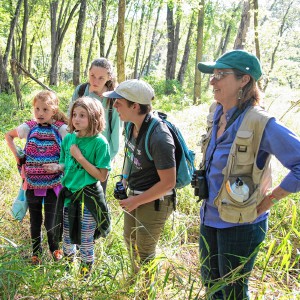The Quiet Nature of Richard and Mildred Loving Led to a Quiet Film
| Published: 11-24-2016 10:00 PM |
Like everything else in Loving, the movie’s climax doesn’t soar so much as whisper.
A lawyer representing Richard and Mildred Loving in a 1967 Supreme Court case that would validate their marriage and overturn Virginia’s miscegenation laws asks Richard if there’s anything the justices should know.
“Yeah,” Richard, played by Joel Edgerton, mumbles softly while standing on the front porch of the farmhouse where he’s been hiding out with Mildred and their three children. “Tell the judge I love my wife.”
During awards season, we’re used to seeing movies with a Big Oscar Moment: the courthouse outburst or the rousing speech, the jubilant triumph or the tear-jerking death. That instant when the music rises and we know the catharsis is imminent.
But Loving dispenses with the usual emotional manipulation.
The movie is based on the true story of a Virginia interracial couple who were arrested, then exiled from their home state in 1959 after they married in the District of Columbia. In their quest to return home, they unwittingly became civil rights icons. It’s a straightforward tale about modest people who wanted nothing more than a quiet life in the country near family and friends.
Writer-director Jeff Nichols was inspired to make the movie after seeing Nancy Buirski’s 2011 documentary The Loving Story, and he opted to stick to the facts with a film that reflected the Lovings’ unassuming nature.
“I wanted to attach myself to their point of view, and once you make that decision as a storyteller, their point of view is going to inform the aesthetic and style of the narrative,” he said in a recent visit to Washington. “So it wouldn’t have made sense to make a loud film about Richard and Mildred, because they weren’t loud.”
Article continues after...
Yesterday's Most Read Articles
 Crowd turns out to honor late Ascutney Fire Chief Darrin Spaulding
Crowd turns out to honor late Ascutney Fire Chief Darrin Spaulding
 Former principal of South Royalton School released from prison
Former principal of South Royalton School released from prison
 Pick a sport and Pete DePalo’s has probably officiated it over the past 40-plus years
Pick a sport and Pete DePalo’s has probably officiated it over the past 40-plus years
 Upper Valley residents among advocates for NH aid-in-dying bill
Upper Valley residents among advocates for NH aid-in-dying bill
 NH man convicted of killing daughter, 5, ordered to be at sentencing after skipping trial
NH man convicted of killing daughter, 5, ordered to be at sentencing after skipping trial
He couldn’t make a bombastic courtroom drama either, since the couple chose not to attend the trial that would decide their fate. Instead, the movie is a low-key yet moving look at the love two people shared and the state that imprisoned them for it. Ruth Negga plays Mildred, a multiracial woman who wasn’t particularly talkative but comes across as a chatterbox beside her taciturn husband, a man who Edgerton noted looked like a stereotypical “redneck.”
“These beautiful real people, who it’s impossible not to fall in love with, were so quiet and shy and disinterested in being revolutionaries,” Edgerton said recently during a press tour. “Jeff, in a mission to tell that true story truthfully, had to remain authentic to that, and it meant that there was a screenplay that was only really dotted with dialogue.”
“Don’t you find it a relief?” Negga asked. “There’s no unnecessary chat.”
Interestingly, that sense of quietude is a recurring theme in this year’s awards contenders, which tend to follow wallflowers rather than firebrands. We have the quiet, confused Chiron in Moonlight and the grieving Lee Chandler in Manchester by the Sea. For an alien movie, Arrival is notably subdued. The main characters in these movies are memorable more for their inscrutability than their words.
“Actors are perceived as wanting to make speeches because they’re the showy part,” Edgerton said.
“The peacock part,” Negga added. “And they’re often the awarded parts, but the specificity that you are taught to focus in on when sitting in a scene without saying much, is, like, well you can’t just sit there and take the batteries out. There’s a need to know why the silences exist.”
Loving also avoided another technique that directors often use to sensationalize fact-based movies: taking liberties with the truth, even as viewers have gotten increasingly critical of exaggeration. Some thought American Sniper idealized Navy SEAL Chris Kyle; others complained Selma villainized Lyndon Johnson. The events in The Imitation Game were a little too convenient to be real and The Revenant added an entire subplot, including a murdered son, to justify the revenge saga of wounded frontiersman Hugh Glass. Increasingly, moviegoers reach for Wikipedia as soon as they leave the theater, curious to know how filmmakers augmented reality.
Is it too optimistic to think that Spotlight could be a trailblazer, proving what happens when a director opts for truth and subtlety? Director Tom McCarthy and his team researched even the small details for the cinematic version of the story of the Boston Globe’s Pulitzer-winning investigation of sexual abuse in the Catholic Church. That movie went on to win the Academy Award for best picture, and McCarthy and co-writer Josh Singer won for best original screenplay.
Loving, with its methodical pace and lack of bells and whistles, has a similar feel to Spotlight. It’s a movie that proves that reality alone can be both enlightening and moving.
Nichols, an Arkansas native who, like his movies, comes across as calm and measured, says he worked hard to make sure the movie was factual. “I tried not to create anything,” he said. “There were things I had to create, but I tried not to create anything that I couldn’t attach to some cited fact.”
He even invited the Lovings’ last surviving child to the set to weigh in on how accurate everything looked. (Richard Loving was killed by a drunk driver in 1975; Mildred died of pneumonia in 2008.) On the first day, Peggy Loving Fortune gave Nichols a scare after watching a scene where the family was seated around a dinner table and proclaiming, “Well, you got that wrong.”
“What part?” he recalls asking her, to which she responded, “We never had dishes that nice.”
Negga, who has a lovely, singsongy accent that she describes as Irish English, listened to archival footage to get Mildred’s accent just right. She recalls listening to the woman’s voice on her headphones and running into Edgerton, an Australia native, who was doing the same, studying up on Richard’s distinctive drawl.
“We had no choice,” Negga said. “Why would you ever enter the arena of the Loving couple and not want to nail every little thing about them? Why would you bother?“
Then she sat for a moment in silence and thought some more.
“Anything less would have been disrespectful,” she concluded, “to them and to ourselves.”

 How a hurricane and a cardinal launched a UVM professor on a new career path
How a hurricane and a cardinal launched a UVM professor on a new career path Out & About: Vermont Center for Ecostudies continues Backyard Tick Project
Out & About: Vermont Center for Ecostudies continues Backyard Tick Project Art Notes: After losing primary venues, JAG Productions persists
Art Notes: After losing primary venues, JAG Productions persists  Over Easy: Marvels in the heavens, and in the yard
Over Easy: Marvels in the heavens, and in the yard 
